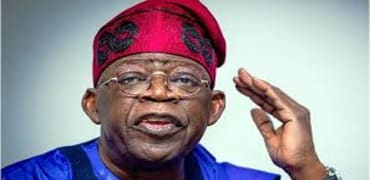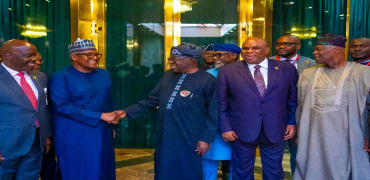FG Clarifies $21.5bn Borrowing Plan, Engages World Bank, China, EU for Development Financing
FG Clarifies $21.5bn Borrowing Plan, Engages World Bank, China, EU for Development Financing
By Achimi muktar
In a move stirring headlines and raising eyebrows, President Bola Tinubu has formally requested the National Assembly’s approval for a staggering $21.5 billion external borrowing plan—part of a sweeping 2025–2026 strategy to reposition Nigeria’s economy. But the Federal Government insists: this isn’t about sinking deeper into debt. It’s about investing smartly—and sustainably.
Amid public concerns, the Federal Ministry of Finance stepped in on Tuesday with a detailed explanation, outlining what it calls a "structured, forward-looking" Debt Rolling Plan that covers external borrowing needs for both federal and sub-national governments.
According to a statement signed by Mohammed Manga, Director of Information and Public Relations at the ministry, the proposed borrowing framework is designed to prevent short-term, reactive loan decisions and instead support long-term development planning.
“The plan facilitates comprehensive financial planning and avoids the inefficiencies of ad hoc or reactive borrowing practices,” the statement read.
The $21.5 billion won’t be borrowed blindly. The government revealed it plans to source the bulk of these funds from trusted development partners offering concessional terms and extended repayment windows. These include:
World Bank
African Development Bank (AfDB)
China EximBank
French Development Agency
European Investment Bank
JICA (Japan)
Islamic Development Bank
“These institutions offer financing that is not only affordable but also tailored to stimulate sustainable development,” the statement emphasized.
The Tinubu administration has been clear about the motive behind the borrowing: critical investments in key sectors like transportation, agriculture, infrastructure, and energy. These areas are seen as foundational for economic diversification, private sector growth, and job creation.
“Our debt strategy is guided not just by the size of our obligations, but by the economic returns and utility of the borrowing,” Manga clarified. “Ensuring that all borrowed funds are efficiently utilized and directed toward growth-enhancing projects remains a top priority.”
This request isn’t Tinubu’s first foray into external funding. Just this week, he also sought approval for an additional 15 billion Japanese Yen and a 51 million Euros grant to support employment, entrepreneurship, food security, and skill acquisition across the 36 states.
According to the president, Nigeria’s dwindling domestic revenues make it necessary to secure prudent external support to close the nation’s vast infrastructure gap.
“These projects are not just federal—they will touch every corner of Nigeria,” he told the Senate.
Critics may be quick to sound the alarm, but Nigeria has shown signs of responsible debt management. In 2020, the country took a $3.4 billion emergency loan from the International Monetary Fund (IMF)—a loan that has now been fully repaid, the government proudly noted.
As of December 2024, Nigeria’s total foreign debt stood at $44.9 billion, with the top creditors being:
Eurobond holders – $17.32 billion
World Bank (IDA) – $16.56 billion
Exim Bank of China – $5.06 billion
AfDB – $2.10 billion
IBRD (World Bank) – $1.24 billion
While the numbers may appear daunting, the message from the Tinubu administration is simple: Smart debt, not more debt. With global partners onboard and a structured roadmap in hand, the government is betting big on loans as a tool—not a trap—for long-term economic transformation.


















